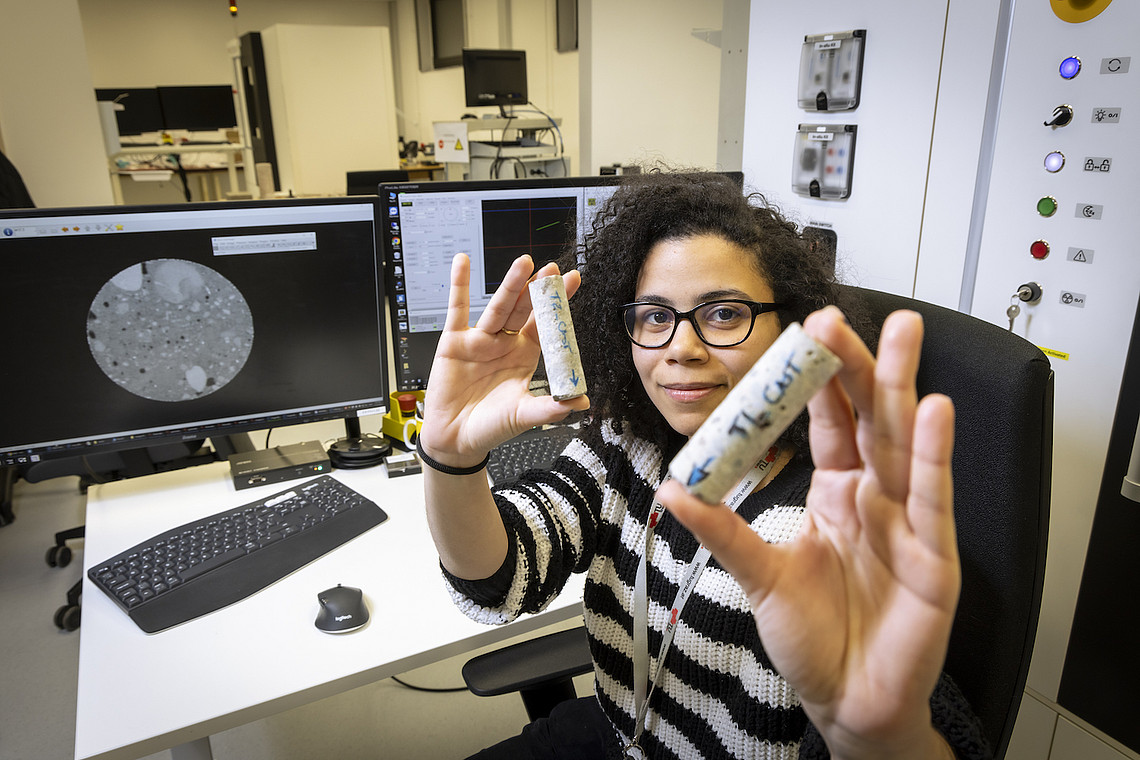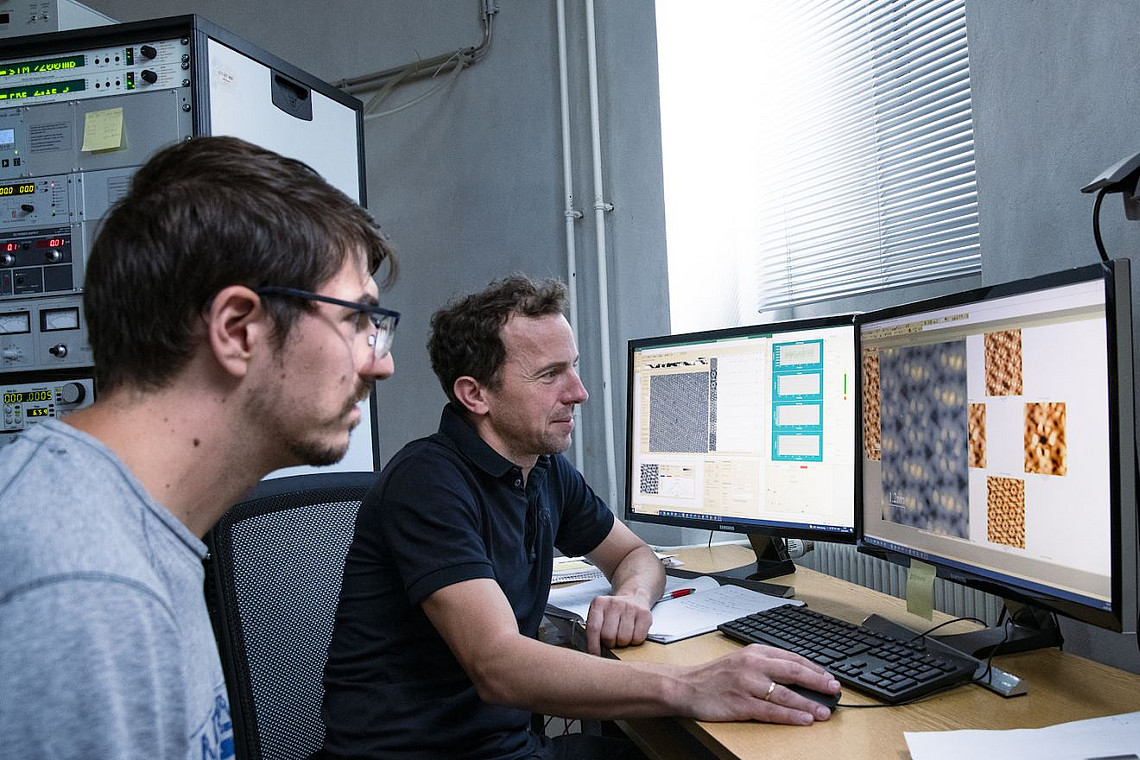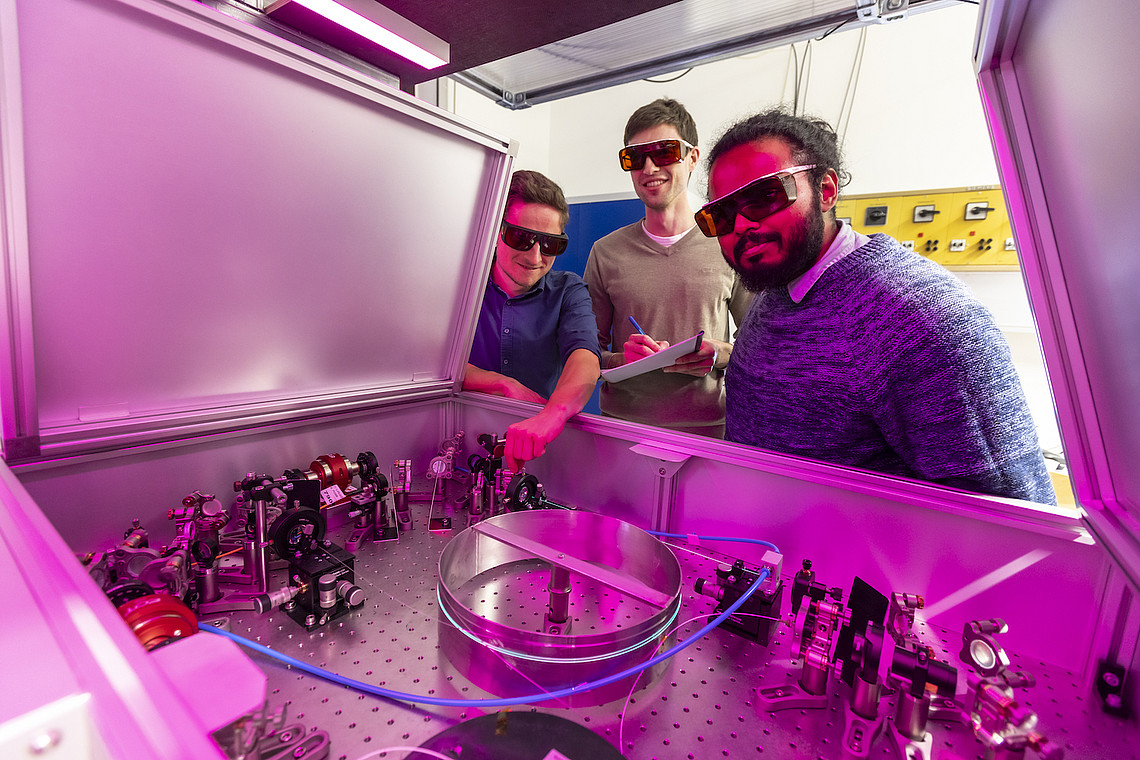Begin of page section: Contents:
NAWI Graz studies in the field of physics
Physics is a natural science that deals with the fundamental phenomena of the universe. Its aim is to explore the fundamental laws that determine the structure and behavior of the material world. This includes the study of matter, energy, space and time as well as the interactions between these components. Physics is divided into various subfields, including mechanics, thermodynamics, electrodynamics, quantum mechanics, relativity and many more, each of which investigates specific aspects of physical behavior. The subject plays a key role in science and technology. Trained physicists are characterized by a high degree of flexibility and can be deployed as highly qualified specialists in industry, business and science. They are regarded as universal problem solvers in innovative sectors and are predominantly employed in scientific and technical fields.
Physics is closely related to other natural sciences such as chemistry and biology, as its principles form the basis for understanding many processes in these disciplines. By constantly researching and expanding its knowledge, physics makes a significant contribution to technological progress and a deeper understanding of the universe.
- to theBachelor Physics
- to the Master Physics
- to the Master Technical Physics
- to the Master Advanced Materials Science
The Bachelor's degree program in Physics focuses on mastering the core areas of physics, ranging from mechanics and quantum mechanics to electro- and thermodynamics and solid state physics. Students are also taught the skills to use the tools that are important for physics, such as mathematical methods, physical measurement methods, concepts of modeling or computer-aided processing of physical problems.
Students also acquire the ability to think analytically and abstractly, which makes them sought-after all-rounders in a high-tech environment. The Bachelor's degree program is rounded off by two specializations (General Physics or Technical Physics) from which students can choose.
Link to the curriculum
Physicists explore the properties of the world and the universe and refer to them to formulate the laws of nature, the most fundamental descriptions of reality. This makes them universal problem solvers. By working with experimental, theoretical and computational methods, you will develop the analytical skills needed to tackle important challenges in scientific, economic and industrial fields.
The Master's degree in Physics expands and deepens the knowledge and skills acquired in the Bachelor's. Specializations are possible in the following subjects:
- Astrophysics
- Atmospheric physics and climate
- Experimental Physics
- Space physics and aeronomy
- Theoretical and computational physics
Link to the curriculum (courtesy translation)
In the Master's degree program in Technical Physics, students build on the knowledge acquired in the Bachelor's degree program and expand their skills in solving physical and mathematical problems in order to be able to work on research-related and application-oriented issues. After graduating, students have numerous career opportunities in Germany and abroad. They can choose whether they want to continue researching fundamental aspects of physics or work on the development of new materials, technologies and processes for industry.
Areas of specialization are:
- Applied Materials Physics
- Computational Condensed Matter Physics (physics of condensed matter)
- Laboratory technology and instrumentation
- Microscopy and nanoanalytics
- Modeling of materials
- Nano- and laser optics
- Nanosciences
- Quantum many-body physics
- Quantum optics and molecular physics
- Radiation and plasma physics
- Semiconductor devices
- Surface science
- Theoretical Solid State Physics
Link to the curriculum (courtesy translation)
Materials science forms the basis that enables technological innovations and the development of groundbreaking technologies. In the interdisciplinary NAWI Graz Master's degree program in Advanced Materials Science, you will acquire an understanding of materials and their properties. You will learn the physical and chemical fundamentals as well as the engineering skills required for the development of new materials. As a trained materials scientist, you will be able to tackle a wide range of complex tasks in industry and research.
Materials science forms the basis that enables technological innovation and the development of future-oriented technologies. In this degree program, you will acquire an understanding of materials and their properties. You will learn the physical and chemical fundamentals as well as the engineering skills required to develop new materials. As a qualified materials scientist, you will be able to tackle a wide range of complex tasks in industry and research.
Link to the curriculum (courtesy translation)
End of this page section. Go to overview of page sections
End of this page section. Go to overview of page sections



